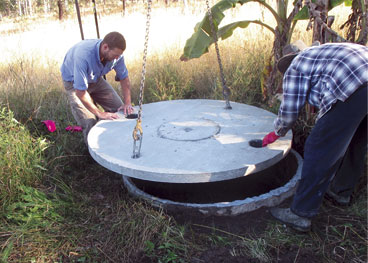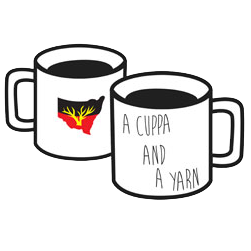
25 November, 2009
Health risked lessened at three North Coast Aboriginal communities
25 November, 2009
Major new work to improve water and sewage systems at three NSW North Coast Aboriginal communities - Malabugilmah, Baryulgil Square and Jubullum Village have begun under a visionary $200 million joint State Government/New South Wales Aboriginal Land Council initiative.
NSWALC's representative for the North Coast Region, Councillor Patricia Laurie, said the work was long overdue.
"Some of the issues were quite serious - certainly a potential threat to the health of community members," Councillor Laurie added.
The improvement work at all three communities is being carried out by private contractor, Ecoteam, a company which specializes in waste water management and recycling systems.
The company's founding director and chief scientist, Dr Keith Bolton, said the level of work completed differed at each community.
"At Malabugilmah, for example, the work we have already carried out includes the completion of a new wetlands area consisting of gravel-filled tubs densely planted with paper bark trees - which is a form of bio-filtration of water under ecological principles - and repairs to most of the community's septic tanks.
"We are now developing a scope of work for further extensive work such as a possible new water filtering system".
At Baryulgil, a significant amount of work had already been undertaken, such as the complete re-jigging of the effluent distribution system, which previously probably posed a health risk and repairs to a sludge pump. Dr Bolton said the Baryulgil community's water was bore water which had particularly high calcium carbonate levels.
"In simple terms the water is hard water and because of this very heavy scaling occurs in appliances. At Baryulgil hot water systems have a lifespan of only about l2 months".
Dr Bolton said a working group of senior representatives from the NSW Office of Water and other professional people had been established to decide on the best way to go forward. "We are considering whether it is best, for example, to use water from the river or whether it's best to install new water softening infrastructure".
Dr Bolton said work at Jubullum Village, which was part of the Tenterfield Shire area,
had begun more recently and included cleaning out sewerage mains and emergency repairs to the community's water mains.
"The repairs to the water mains were emergency repairs," Dr Bolton said. "We found major leaks in the water mains system. These have been repaired".
Work had also been carried out on the improving the sterilization of the community's water supply.
Dr Bolton said Ecoteam had repaired the community's UV disinfection system, which previously had regularly failed because of power black outs caused by poor wiring. New electricial circuits including surge protection and alarm lights had now been installed with design work underway on the construction of a completely new disinfection unit, which would include a self-start generator.
Councillor Laurie said the work already undertaken - and the planned future work at all three communities - was a perfect example of why New South Wales Aboriginal Land Council elected representatives had opted to use $100 million of its own money to jointly fund the new program.
"It is a 25 year program and water and sewerage facilities at 60 discreet Aboriginal communities throughout the State will be improved," Councillor Laurie added.
"The three communities in the North Coast Region are three of l3 communities throughout the State who have already seen major improvements since the program began last year".

